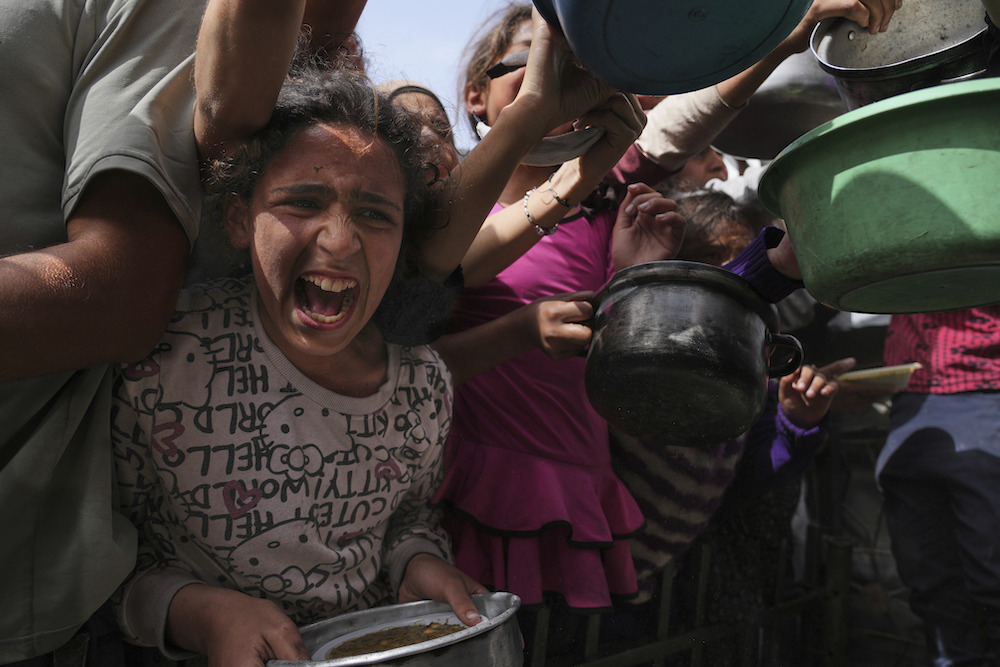CAIRO: Famine has spread across war-torn Sudan and is projected to expand even further, a UN-backed assessment said Tuesday, with refugee camps and displaced communities hit particularly hard.
The Integrated Food Security Phase Classification (IPC) review, which is used by UN agencies, determined that famine had spread to two additional displacement camps in the country’s west and parts of the south.
Sudan is reeling from 20 months of fighting between the Sudanese army and the paramilitary Rapid Support Forces, led by rival generals, which have led to a dire humanitarian crisis.
The war since April 2023 has killed tens of thousands of people and uprooted 12 million, creating what the United Nations has called the world’s largest displacement crisis.
In its latest report on Tuesday, the IPC said 638,000 people are now facing catastrophic levels of hunger, with a further 8.1 million on the brink of famine.
UN Secretary-General Antonio Guterres expressed alarm, reiterating “his call for the parties to facilitate rapid, safe, unhindered and sustained access so that humanitarian assistance and staff can reach people in need,” according to a statement.
The IPC found there was famine in three camps in North Darfur — including Zamzam, where famine had already been declared in August — and among residents and displaced communities in the Nuba Mountains, in the southern Kordofan region.
Between December and May, the IPC said that 24.6 million people representing around half of Sudan’s population are projected to face “high levels of acute food insecurity.”
The report said that this “marks an unprecedented deepening and widening of the food and nutrition crisis.”
According to the UN’s World Food Programme (WFP), some areas of “intense conflict,” including parts of the capital Khartoum and the central state of Al-Jazira, “may already be experiencing famine conditions,” but a lack of access to data has prevented an official classification.
Guterres, in his remarks on Tuesday, urged “an immediate cessation of hostilities to save lives and prevent the crisis... from escalating even further in 2025,” his spokeswoman Stephanie Tremblay said in a statement.
The IPC said in its report that 17 additional areas in western and central Sudan were at risk of famine.
It added that by May, famine was likely to spread to five more parts of North Darfur state, which has seen some of the most intense fighting in the war.
Aid group Save the Children called the report’s findings “terrifying.”
The group’s humanitarian director for Sudan, Mary Lupul, said the deepening crisis showed “a failure of the global system.”
“Children are famine’s first victims and are already facing avoidable and excruciating deaths due to malnutrition and disease,” Lupul said.
She called for “immediate, unhindered access through all border crossing and across the country to provide large-scale humanitarian assistance and commercial deliveries.”
In October, UN experts accused the two warring sides of using “starvation tactics” against civilians.
Aid agencies say that the army-aligned government has placed bureaucratic hurdles to their work, leveraging its international legitimacy as the ruling authority to close key aid access points.
Only two UN convoys have been allowed to reach the Zamzam camp since famine was declared there, while the nearby North Darfur state capital of El-Fasher has been under siege imposed by the paramilitary forces.
Beyond Zamzam, the IPC said famine had spread to two other camps in North Darfur, Abu Shouk and Al Salam.
Nearly all of the vast western region of Darfur is now controlled by the Rapid Support Forces, which have also taken over swathes of Kordofan and areas in central Sudan.
The army holds the country’s north and east.
Jean-Martin Bauer, WFP’s director of food security and nutrition analysis, warned that “a protracted famine is taking hold in Sudan.”
“People are getting weaker and weaker, and are dying as they have had little to no access to food for months and months.”



























